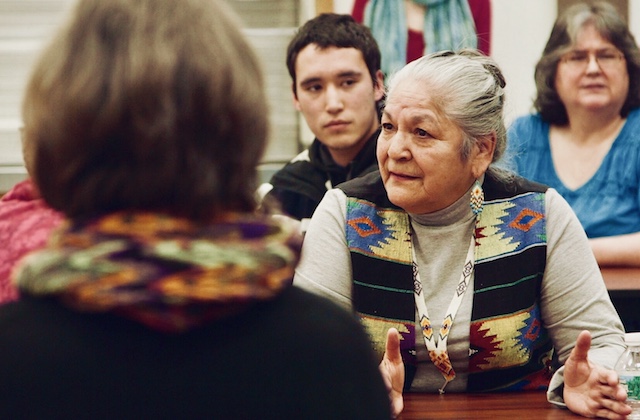As Indigenous tribes fight new challenges to the Indian Child Welfare Act (ICWA) and their own voting rights, a documentary highlights one recent attempt to reckon with the genocidal policies that led to the act’s creation.
"Dawnland," which airs on PBS tonight (November 5), takes viewers inside the groundbreaking Maine Wabanaki-State Child Welfare Truth and Reconciliation Commission (TRC)—the first TRC to address Indigenous tribes’ relationship with child welfare institutions in the United States. After being signed into existence by five Wabanaki chiefs and Governor Paul LePage (R-Maine), the TRC began cataloging testimonials from Wabanaki tribal members who survived forced child relocation.
This practice continued a trend, once typified by boarding schools, in which states and the federal government took Indigenous children from their homes and placed them in predominantly White families. "Dawnland" captures TRC community events in which Wabanaki adults disclose their experiences being taken away or losing their children without warning. Many of these tribal members spoke candidly about being abused by adoptive parents for speaking Penobscot and not being able to speak with their birth parents. They also relate how that violence left deep emotional scars and harmed relationships with their own children.
"Dawnland" also highlights the tension between the TRC’s titular goals, as the Wabanaki need to heal by speaking truth to trauma clashes with White allies’ desire for quick closure. It frames these events within the context of ICWA—which protects Indigenous kids from relocation into White families—and the ways child welfare policy still hurts Indigenous children and families.
Watch "Dawnland" tonight on PBS at 10 p.m. or stream at PBS.org.
